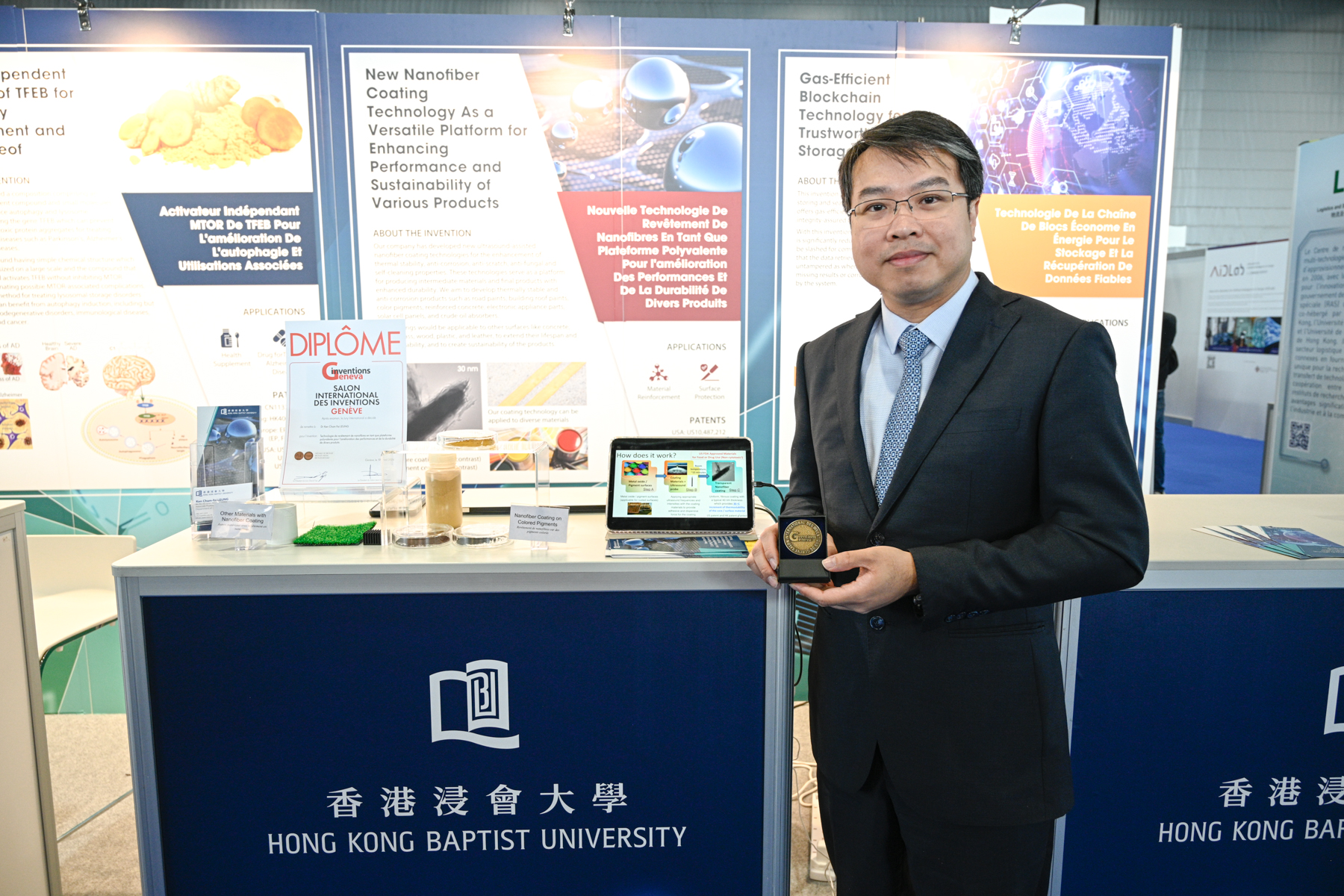Previous Events
HKBU Scholars Awarded at Geneva International Exhibition of Inventions
At the 49th iteration of the Geneva International Exhibition of Inventions, which took place from 17 to 21 April, Hong Kong Baptist University (HKBU) scholars' pioneering research projects garnered widespread attention, securing an impressive total of nine awards. The lineup included a prestigious Gold Medal with Congratulations of the Jury, alongside four Silver Medals and four Bronze Medals.
The celebrated research projects from HKBU include:
Gold Medal with Congratulations of the Jury
- “Modular protein-based siRNA delivery agent for gene therapy” by Dr AIK Wei Shen, Assistant Professor of the Department of Chemistry
This novel technology leverages protein carriers naturally occurring in the human body to transport siRNA, aiming to mitigate immune responses and tailor to various genetic targets, offering significant promise for treating a myriad of health conditions, including cancer, viral infections, and rare genetic disorders.
Silver Medals
- “MTOR-independent activator of TFEB for autophagy enhancement and uses thereof” by Professor LI Min, Executive Associate Dean of Chinese Medicine and Ma Pak Leung Endowed Professor in Innovative Neuromedicine
The research group identified a formula that includes a compound capable of boosting autophagy along with small molecular components. This formula facilitates autophagy and the production of lysosomes by triggering a gene known as TFEB, which plays a role in preventing the build-up of harmful protein clumps that are linked to neurodegenerative conditions like Parkinson's, Alzheimer's, and Huntington's diseases. The compound features a straightforward chemical makeup that latches onto and stimulates TFEB without impeding the MTOR signaling route, thereby minimizing the possible adverse effects that can arise from blocking MTOR.
- “Quality control marker for use in authentication of edible bird’s nest” by Professor Simon HAN Quanbin, Professor of the Teaching and Research Division of the School of Chinese Medicine
A set of peptide indicators within the hydrolyzed components of edible bird's nests (EBN) is developed. This technique facilitates both the qualitative and quantitative verification of EBN and its derivatives, as well as offering the distinctive ability to distinguish between the more frequently utilized white EBN and its more affordable counterpart, grass EBN. This advancement greatly enhances the authentication procedure, verifying the authenticity of EBN products in the marketplace.
- “Gas-efficient blockchain technology for trustworthy data storage and retrieval” by Professor XU Jianliang, Head and Chair Professor of the Department of Computer Science
This inventive and financially viable approach offers an economical method for handling blockchain data, enhancing gas efficiency and maintaining the trustworthiness of queries within a blockchain system. It can cut down the costs tied to processing blockchain transactions by as much as 78%. In addition, it ensures that the data retrieved from queries is reliable and remains unchanged from its initial storage location. Should any data be lost or compromised, the system is designed to swiftly detect and notify user.
- “Novel mechanisms of affordable, safe, and edible medicinal herb BH1 in preventing colorectal cancer” by Dr SZE Cho-wing, Associate Director and Assistant Professor of the Golden Meditech Centre for NeuroRegeneration Sciences
The study identified a plant-based compound, BH1, with the potential to thwart colorectal cancer, ranked as the third most prevalent cancer globally. Dr. Sze and his colleagues are now concentrating on refining BH1 to develop dietary supplements and food enhancers that can be seamlessly integrated into daily consumables such as cereal, cookies, and energy beverages. The objective is to infuse BH1 into these items while preserving their authentic taste.
Bronze Medals
- “Health products for anti-fibrosis” by Professor ZHANG Hongjie , Associate Dean (Teaching and Learning) of Chinese Medicine and Director of the Teaching and Research Division of the School of Chinese Medicine
The research team has been looking into certain substances known as dihydro-resveratrol (DR2) stilbenoids, which might help treat fibrosis-related diseases. These substances could be helpful for conditions like lung scarring, liver cirrhosis, and skin aging. DR2 stilbenoids might also reduce lung damage from severe pancreatitis and help keep the lungs' shape intact. Moreover, these substances could play an important role in preventing damage to organs caused by certain cells that, when active, start the process of fibrosis.
- “Tongue HealthChecker - method, device and computer system for tongue imaging” by Dr ZHANG Shiping, Associate Professor of the Teaching and Research Division of the School of Chinese Medicine
The mobile app lets people take pictures of the coating on their tongue and send them to a server to get checked out from a Chinese medicine point of view. The app is a handy way for users to keep an eye on their health and might help them spot or stop sickness early on. The goal of the team is to mix old Chinese medicine ways of diagnosing with today's tech, making it easy for everyone to check on their health.
- “New nanofiber coating technology as a versatile platform for enhancing performance and sustainability of various products” by Dr Ken LEUNG Cham-fai, Associate Professor of the Department of Chemistry
This new technology uses ultrasound to make a special nanofiber coating that protects against heat, rust, and scratches. It helps make materials and items tougher and longer-lasting. This includes things like paint, coloring agents, stronger concrete, and parts for electronics. You can put this coating on many surfaces, such as concrete, metal, glass, wood, plastic, and leather, to help them handle heat better.
- “Diagnostic kits and prebiotics products for irritable bowel syndrome and metabolic syndrome” by Dr ZHAI Lixiang, Assistant Professor of the Centre for Chinese Herbal Medicine Drug Development
The new test kits that check the bacteria in your gut can tell if you might get stomach troubles like IBS or other conditions like high blood sugar and type 2 diabetes. Dr. Zhai and his team made special prebiotics, with ingredients from Chinese medicine, to help good bacteria grow in your stomach and fix any imbalances. This is really good for people with IBS or metabolic problems because these issues often mess with the bacteria in the gut.
Additionally, Dr CHAN Mau-hing, Lecturer from the Department of Physics, alongside his team and in collaboration with the Education Bureau, earned a Silver Medal for the "STEAM Education for future: Innovation and technology learning module at junior secondary level," which supports science education with a focus on green energy and smart technology.
HKBU's commitment to being a research-led institution in Asia with global impact is evident in these awards. The university's innovative research efforts strive to push knowledge boundaries, tackle global challenges, and enhance community well-being. The projects showcased at the Geneva International Exhibition of Inventions are a testament to HKBU's dedication to transforming research into practical solutions for humanity.
The Geneva International Exhibition of Inventions stands as a premier global platform for inventors, with this year's event attracting 1,035 inventions from 38 countries and regions, all rigorously assessed by an expert panel of judges.
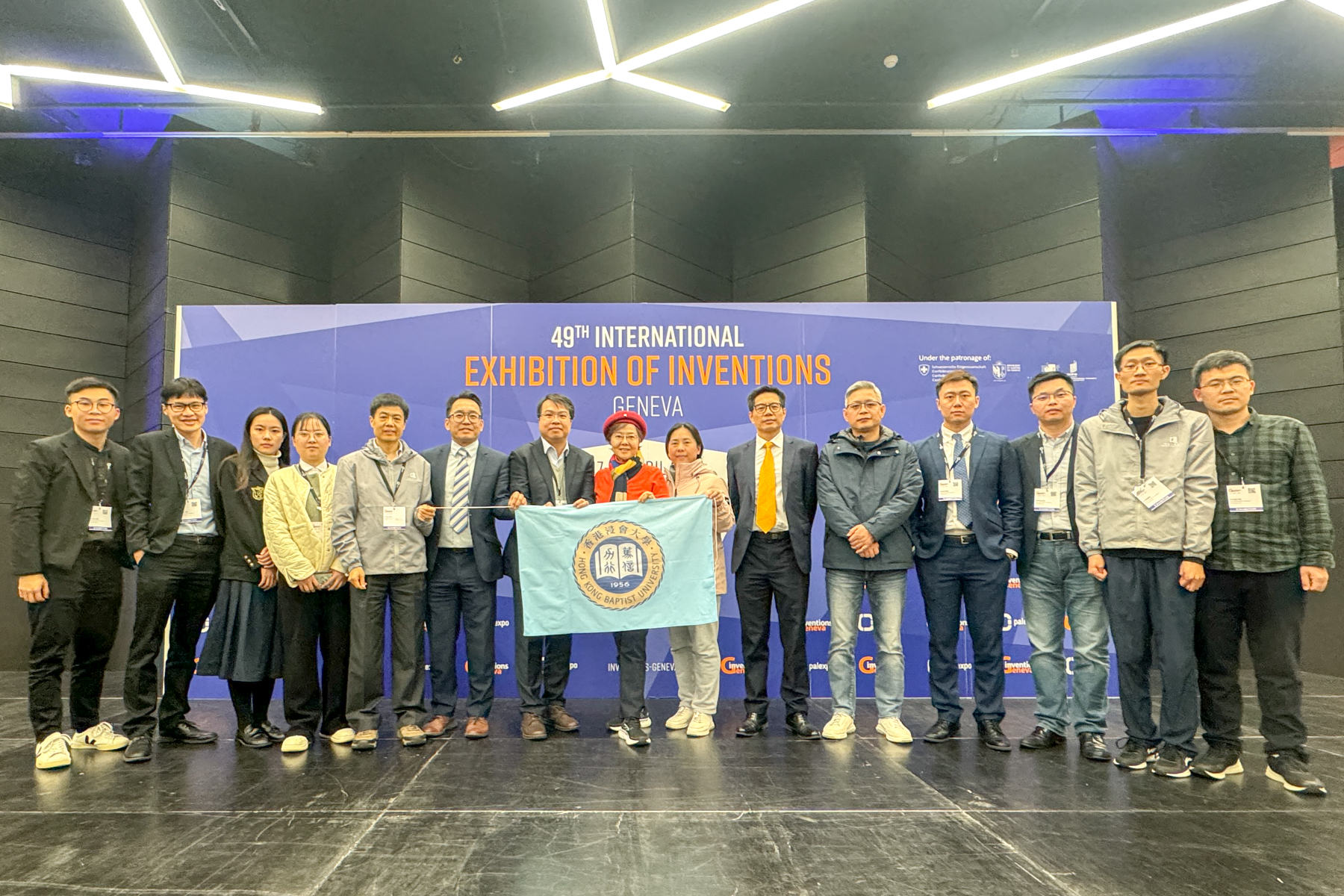
%20and%20his%20PhD%20student%20Mr%20TAM%20Nok%20Yin.jpg)
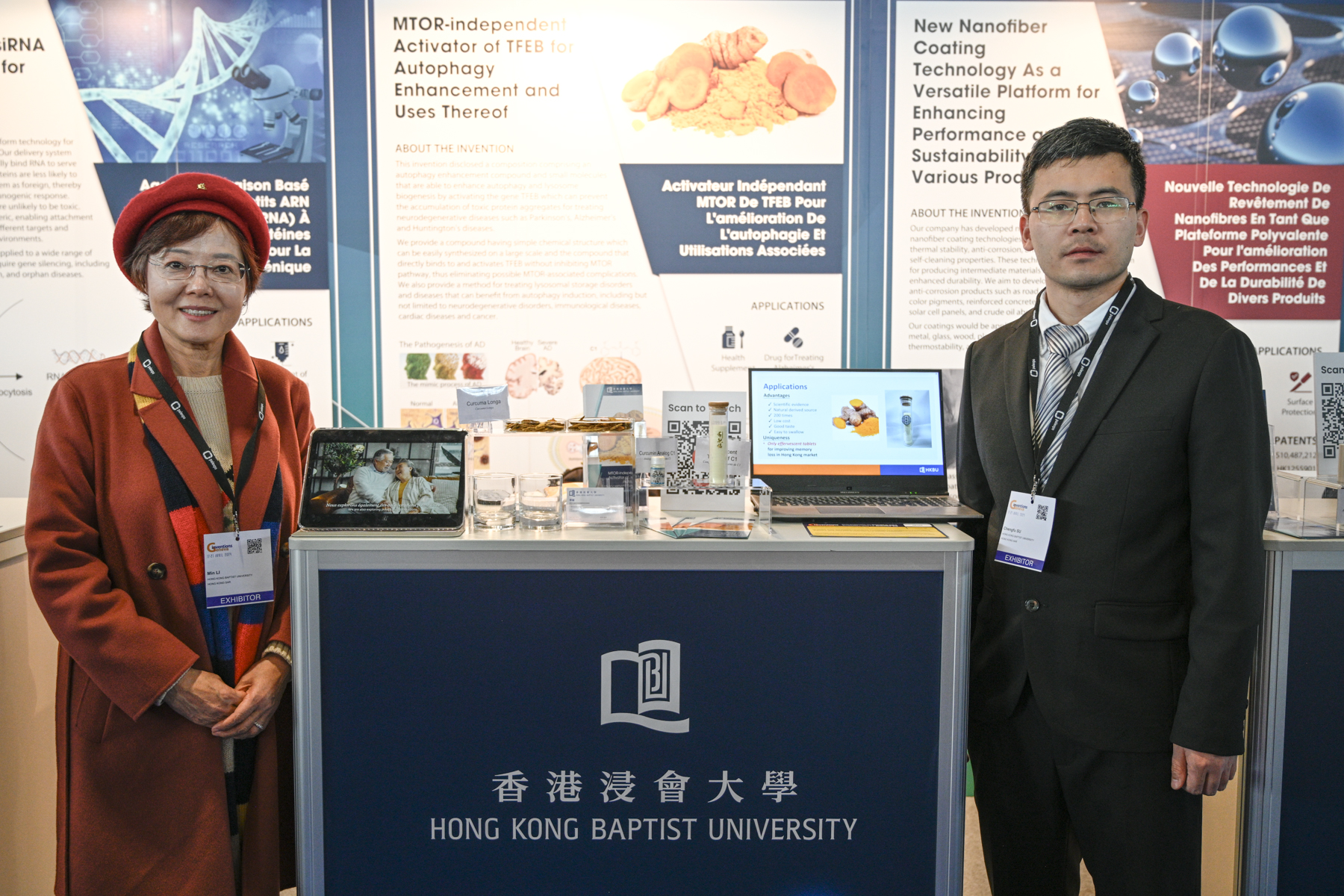
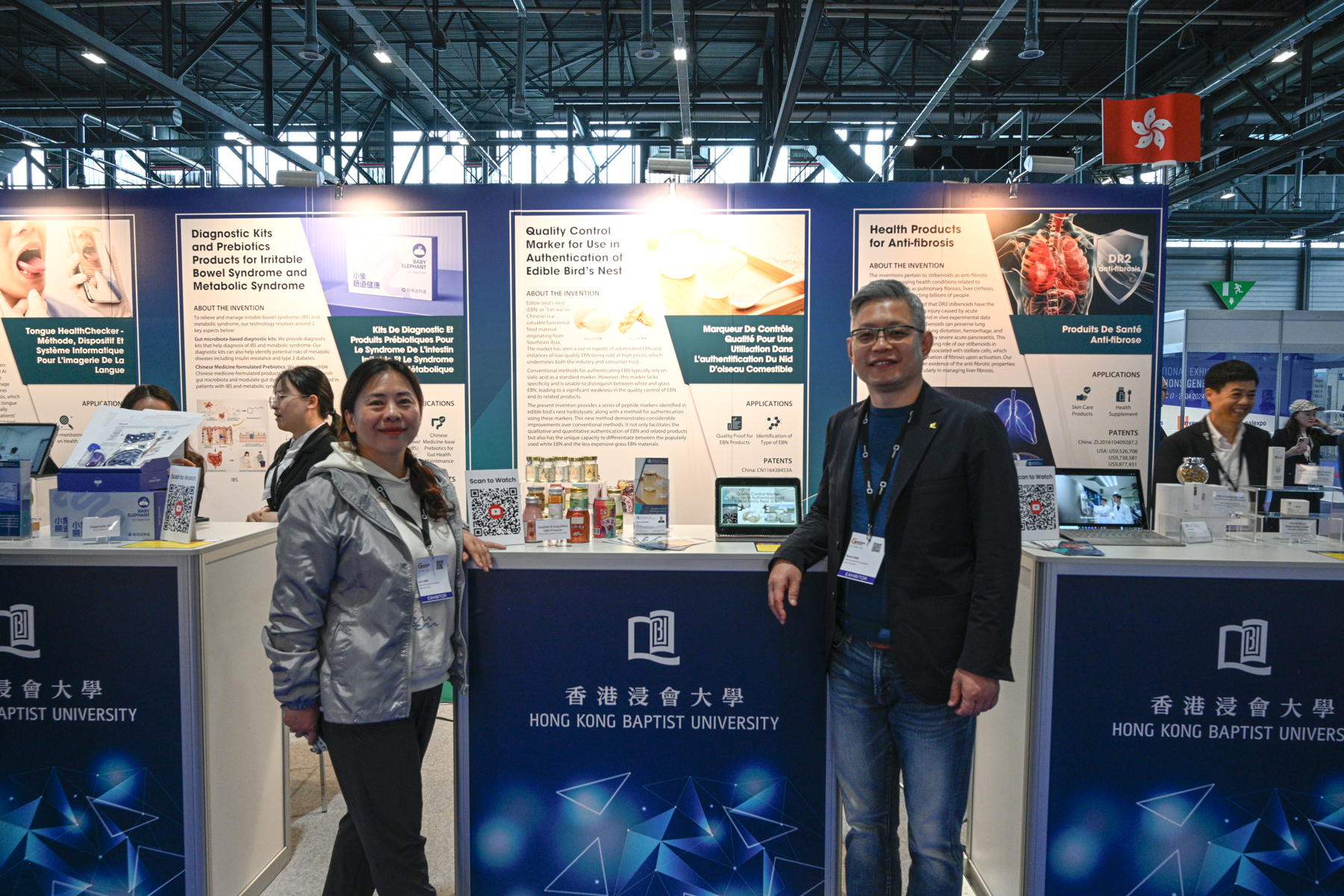
%20and%20post-doctoral%20research%20fellow%20Dr%20ZHANG%20Ce.jpg)
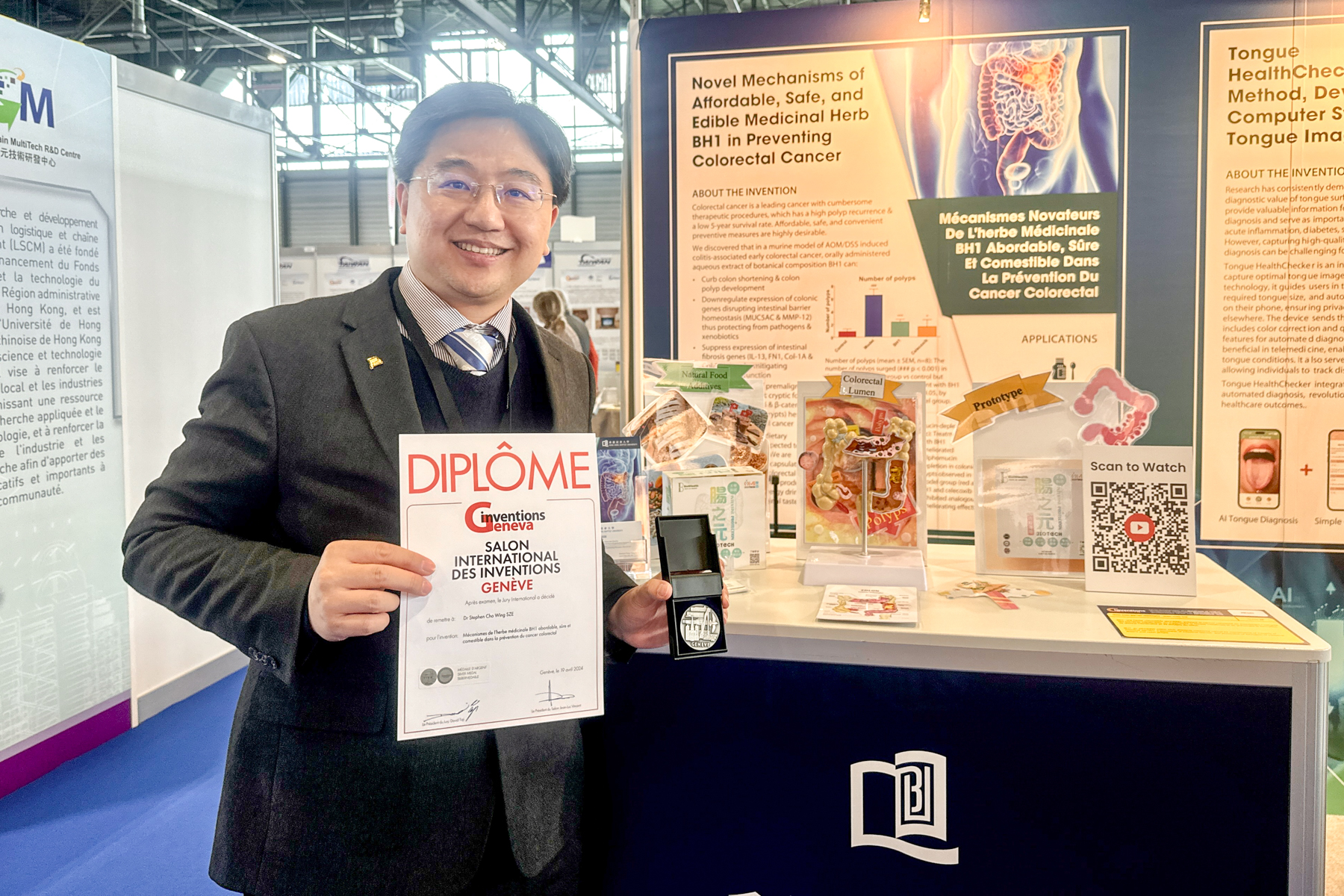
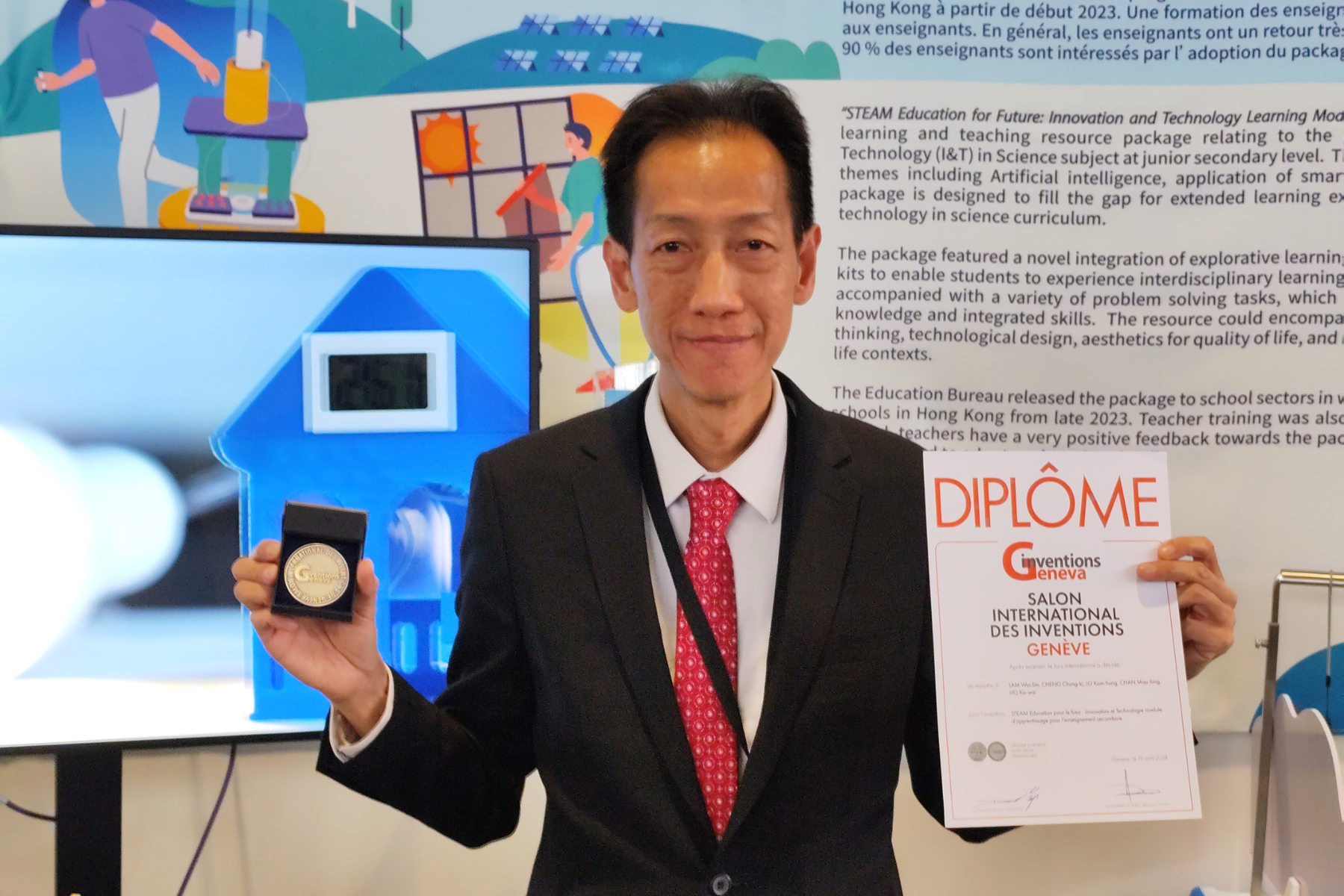
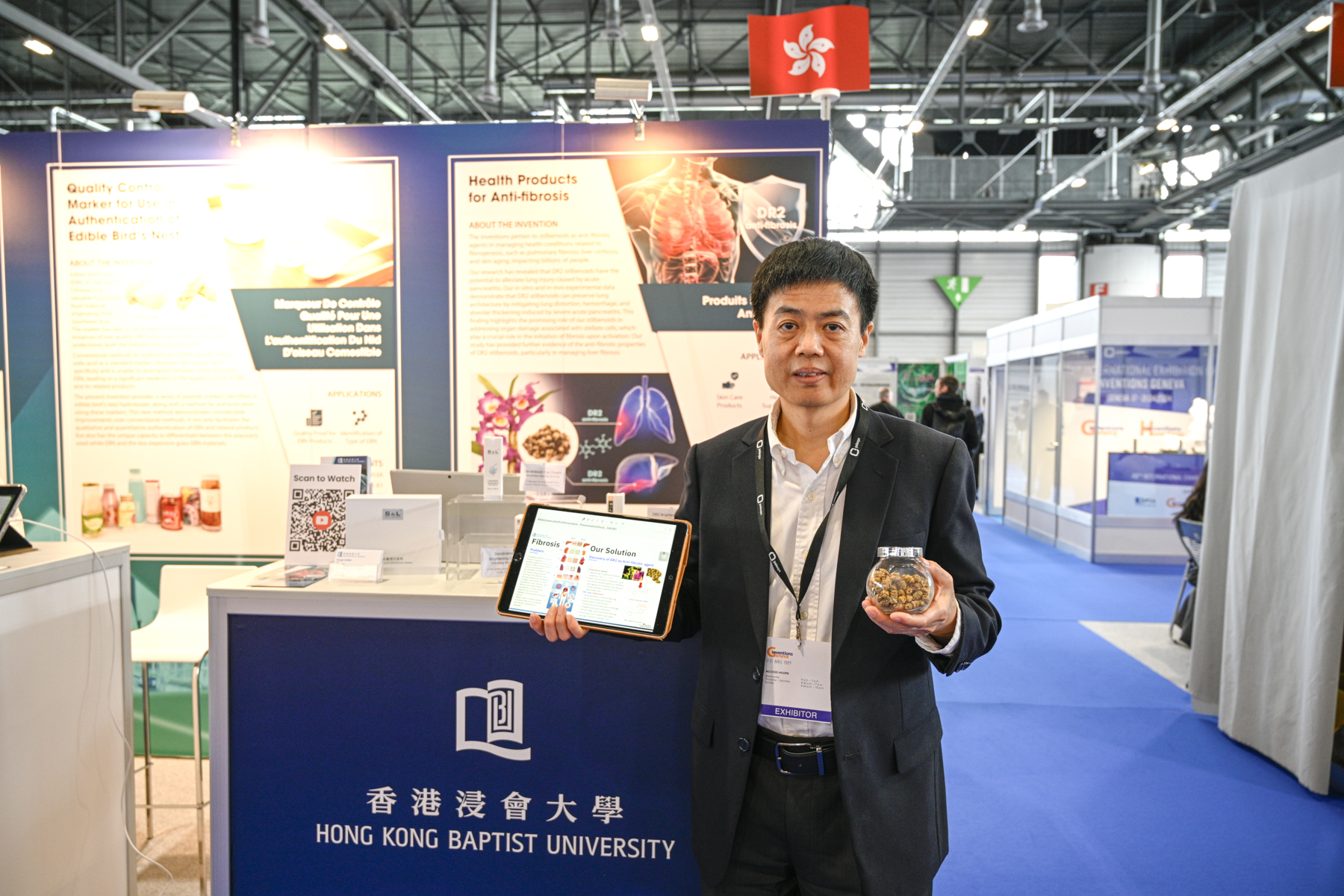
.jpg)
